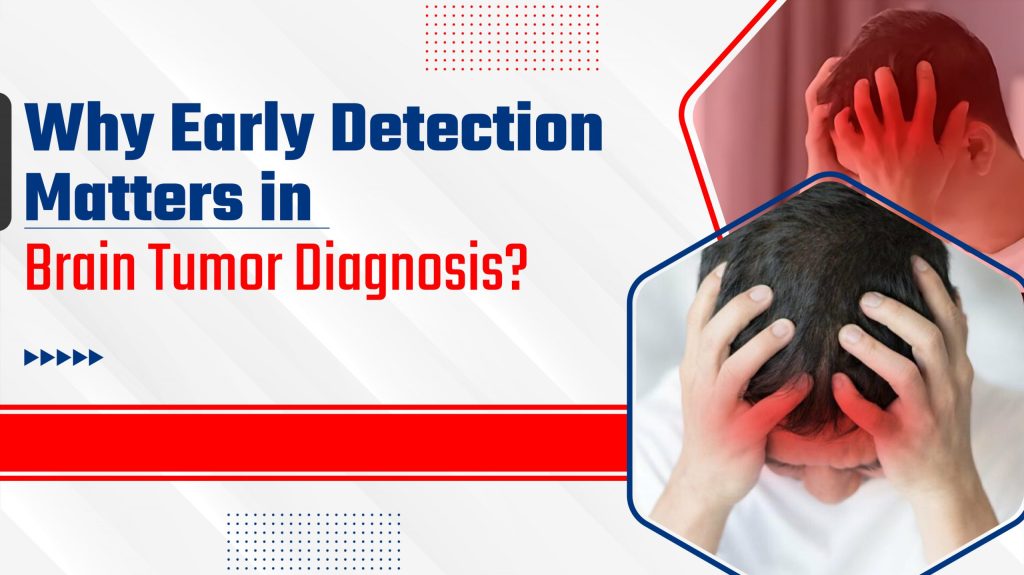Brain tumours are a complicated, sometimes fatal disease that can strike anyone at any age. Advancements in medical research have led to better treatment options. However, early detection is crucial in determining the outcome of a brain tumour diagnosis. Neurologists and neurosurgeons at Kalpit Hospital help in the early diagnosis of brain tumours for effective treatment. This blog will look at why early detection of brain tumours is crucial and what benefits it can provide to patients and their families.
Saves Lives
One of the most important reasons for early identification in brain tumour diagnosis is that it can dramatically enhance survival rates. Detecting cancer in its early stages enables rapid intervention, which may involve surgery, radiation therapy, or chemotherapy. These treatments are most effective when the tumour is small and circumscribed, lowering the risk of complications and increasing the likelihood of a successful treatment outcome.
Preserves Quality Life
Early detection raises the chances of survival and improves the patient\’s quality of life. Brain tumours can induce a variety of symptoms, including headaches, seizures, cognitive impairment, and movement dysfunction. Early identification of the tumour allows healthcare providers to execute suitable treatment measures to ease symptoms and prevent further loss of neurological function. It can improve the patient\’s general well-being while reducing the tumour\’s influence on their everyday life and relationships.
Minimizes Potential Side Effects
In addition to enhancing survival and quality of life, early diagnosis of brain tumours can assist in reducing treatment-related side effects. Many brain tumour therapies, including surgery and radiation therapy, can have side effects such as cognitive impairment, fatigue, and emotional discomfort. With early detection of cancers, healthcare providers can adjust treatment strategies to the tumour\’s characteristics, increasing therapeutic efficacy while reducing the risk of side effects. This tailored approach to treatment can improve patients\’ comfort and happiness throughout their cancer journey.
Facilitates Less Invasive Treatment Options
Early diagnosis of brain tumours may potentially lead to less intrusive treatment alternatives, especially for tiny and confined lesions. Stereotactic radiosurgery and minimally invasive surgical procedures, for example, are effective at treating some forms of brain tumours while causing minimal damage to surrounding healthy tissue. By detecting malignancies early, practitioners can investigate alternate treatment options, giving patients the possibility for a faster recovery and better long-term outcomes.
Empowers Patients and Families
Finally, early detection empowers patients and caregivers by providing important information about their illness and treatment options. Early detection of brain tumours helps individuals make crucial decisions, investigate clinical trials and seek assistance from healthcare professionals and support organizations. This sense of empowerment can significantly reduce anxiety and uncertainty, allowing patients and their families to better deal with the problems of a brain tumour diagnosis.
Conclusion
Early detection is crucial in brain tumour diagnosis, with various benefits for patients and their families. Early identification can impact the overall management and outcome of brain tumours. Kalpit Hospital, the multispeciality hospital in Khalilabad, raises awareness about the necessity of early detection and promotes frequent screening and diagnostic evaluation, which are critical to improving the prognosis and well-being of those impacted by this deadly disease.



